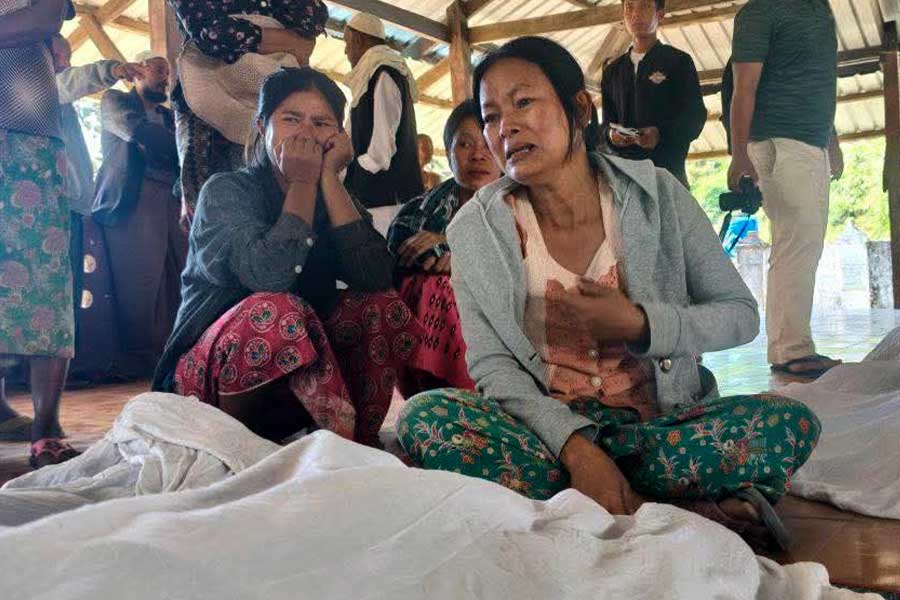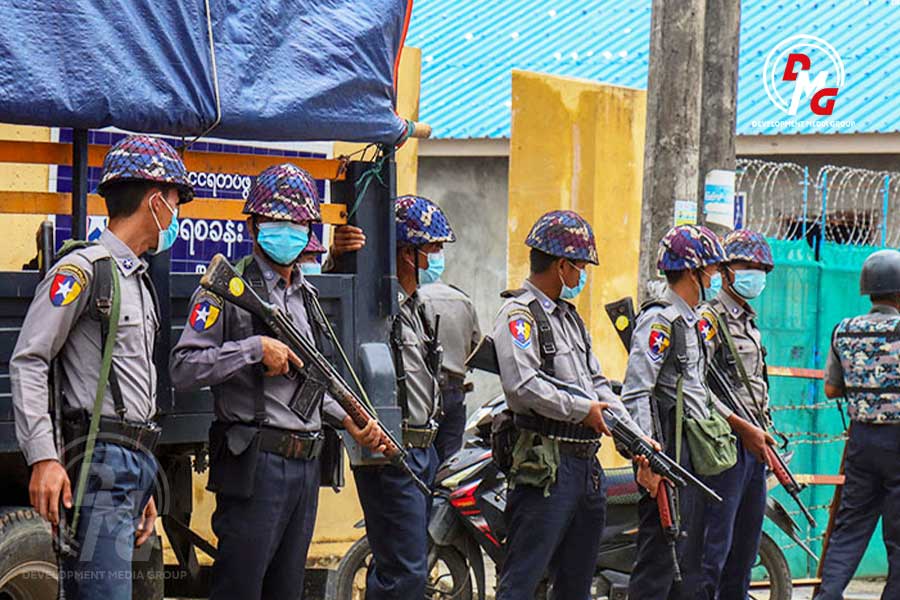- Junta expands naval presence along Arakan coast to regain lost territory
- Nearly 70 civilians and POW family members killed or injured by junta attacks in Arakan State in one month
- Junta accused of extorting money from detained Muslims in Sittwe
- Weekly Highlights from Arakan State (Jan 26 to Feb 1, 2026)
- Arakanese youth stabbed in Mae Sot urgently needs financial aid for medical treatment
Sales of solar panels, related equipment rise in Arakan State amid power supply problems
With Arakan State residents suffering through increasingly frequent and lengthy power outages in recent months, individual households and businesses are reportedly looking more and more to solar panels as an alternative, more reliable means of electricity supply.
04 Dec 2022

DMG Newsroom
4 December 2022, Sittwe
With Arakan State residents suffering through increasingly frequent and lengthy power outages in recent months, individual households and businesses are reportedly looking more and more to solar panels as an alternative, more reliable means of electricity supply.
“Nowadays, almost everyone works with electricity. At the very least, everyone needs electricity, whether it’s to light a lamp or charge a mobile phone,” said Ko Zin Min Soe, a resident of Kyaukphyu. “That’s why I think it’s a situation where everyone will have to buy and use solar panels if it’s going to be regular electricity outages.”
Since Myanmar’s military coup, the supply and distribution of electricity has been irregular and intermittent across much of the country. In Arakan State of late, power cuts have consistently occurred twice a day for anywhere from two to four hours per outage.
Electronics retailers say sales of solar panels and related items such as batteries and inverters have risen alongside the frequency and duration of power cuts in Arakan State.
“Since power outages have been frequent in Arakan State, the sales of electronics went up,” said Ko Htet Zaw Tun, owner of Lucky Electronics Shop in Kyaukphyu. “Now, electricity is not provided at the right time and the amount of time with electricity is less, so people use solar panels for power.”
Previously, solar panels and related equipment were primarily purchased and used by rural people, but as power outages have increased, a growing number of urban residents are buying and deploying them as well, electronics shop owners said.
Buyers are also looking for greater electricity-generating capacity: In the past, 150w solar panels were sold, but currently 300w and 500w solar panels are being bought and used by people.
“The items that sell the most now are batteries, inverters, and light bulbs that can be charged,” said U Kyaw Win, owner of Asia Banner electronic store in Sittwe.
The worsening electricity situation has been one aspect of a broader deterioration in living standards since the coup, along with skyrocketing prices of consumer goods, fuel and other commodities.















.jpg)

